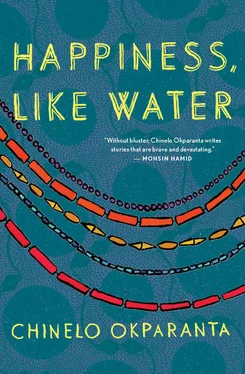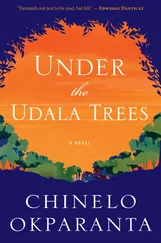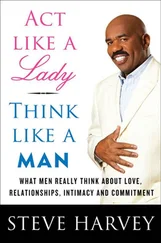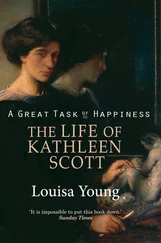I cried the entire bus ride back to Port Harcourt after that second interview. When I got home, I told Mama and Papa what I had done. It was the first time they were hearing about my plan to join Gloria in America. By this time, she had been gone over two years.
Papa was encouraging. He said not to give up. If it was an American degree I needed, then go ahead and apply to American schools so that I could have that American degree. It would be good for me to be in America, he said, a place where he imagined I could be free with the sort of love that I had for Gloria.
‘It’s not enough that I won’t have a grandchild in all of this,’ Mama said, after hearing what Papa had to say. ‘Now I must deal with losing my only child, too.’ There were tears in her eyes. And then she asked me to promise that I would not allow myself to get lost in America.
I shook my head and promised her that she’d not be losing me at all.
All the while, the woman I loved was there, worlds away. If I didn’t make it that third time, I thought, there was a good chance she’d grow weary of waiting for me. If I were to be once more declined, she might move on and start loving somebody else.
By the time I booked the third appointment I had already gained admission to one of the small colleges near where Gloria lived in America. All that remained was for me to be approved for the visa.
About a month before the third interview, Gloria called me to tell me the news. An oil rig had exploded. Thousands of barrels of crude were leaking out into the Gulf per day. Perhaps even hundreds of thousands, there was no telling for sure. She was watching it on the television. Arresting camera shots of something like black clouds forming in waters that would usually be clear and blue.
It was evening when she called, and mosquitoes were whistling about the parlour of my flat. They were landing on the curtains and on the tables and on the walls, making tiny shadows wherever they perched. And I thought how there were probably no mosquitoes where she was. Did mosquitoes even exist in America?
‘A terrible spill in the Gulf,’ she told me. ‘Can you imagine?’ she asked.
I told her that I could not. It was the truth. America was nothing like Nigeria, after all. Here, roads were strewn with trash and it was rare that anyone cared to clean them up. Here, spills were expected. Because we were just Africans. What did Shell care? Here, the spills were happening on a weekly basis. But a spill like that in America? I could honestly not imagine.
‘It’s unfortunate,’ I said to Gloria.
‘Something good must be made out of such an unfortunate event,’ she said.
The bus picks up speed. I watch through the windows as we pass by the small villages in Warri. Then we are driving by signs for Sapele and for the Ologbo Game Reserve. The bus is quiet, and the woman next to me is fast asleep, and I wonder how she can stand to sleep on such a bumpy ride. Hours later, we pass the signs for the Lekki Lagoon. We reach Lagos at about 2 p.m., an early arrival for which I’m very thankful, because it gives me plenty of time to make my way to the embassy on Victoria Island.
At 3 p.m., I arrive at Walter Carrington Crescent, the road on which the embassy is located. Inside the building, I wait in a small room with buzzing fluorescent lights. There is an oscillating floor fan in the corner, and a window is open, but the air is still muggy and stale. I think of Gloria and I imagine what she is doing. It is morning where she is in America, and perhaps she’s already at her office at the university, jotting down notes at her desk, preparing lectures for her students, or perhaps even rehearsing for a public reading somewhere.
I imagine her in a gown, something simple and unpretentious, with her hair plaited in braids, the way it used to be. It’s gathered into a bun at the nape of her neck, but there are loose strands dangling down her back. Just the way she was the first time I saw her.
I continue to wait. The fan oscillates, and I trace its rotations with my eyes. I think of the spill and I remember Gloria’s description: something like black clouds forming in waters that would usually be clear and blue . The waters of the Niger Delta were once clear and blue. Now the children wade in the water and come out with Shell oil glowing on their skin.
I’m imagining stagnant waters painted black and brown with crude when finally someone calls my name. The voice is harsh and causes me to think of gravel, of rock-strewn roads, the kinds filled with potholes the size of washbasins, the kind of potholes we see all over Nigeria, the kind I imagine America does not have.
I answer the call with a smile plastered on my face. But all the while my heart is palpitating — rapid, irregular beats that only I can hear. They are loud and distracting, like raindrops on zinc.
The man who calls my name is old and grey-haired and wears suspenders over a yellow-white short-sleeved shirt. He doesn’t smile at me, just turns quickly around and leads me down a narrow corridor. He stops at the door of a small room and makes a gesture with his hand, motioning me to enter. He does not follow me into the room, which is more an enclosed cubicle than a room; instead there is a clicking sound behind me. I turn around to see that the door has been shut.
In the room, another man sits on a swivel chair, the kind with thick padding and expensive grey-and-white cloth covering. He stands up as I walk towards him. His skin is tan, but a pale sort of tan. He says hello, and his words come out a little more smoothly than I am accustomed to, levelled and under-accentuated, as if his tongue has somehow flattened the words, as if it has somehow diluted them in his mouth. An American.
He wears a black suit with pin stripes, a dress shirt with the two top buttons undone, no tie; and he looks quite seriously at me. He reaches across the table, which is more like a counter, to shake my hand. He wears three rings, each on its own finger, excepting the index and the thumb. The stones in the rings sparkle as they reflect the light.
He offers me the metal stool across from him. When I am seated, he asks for my papers: identification documents; invitation letter; bank records.
‘Miss Nnenna Etoniru,’ he begins, pronouncing my name in his diluted sort of way. ‘Tell me your occupation.’
‘Teacher,’ I say.
‘Place of employment,’ he says, not quite a question.
‘Federal Government Girls’ College in Abuloma. I work there as a science teacher.’
‘A decent job.’
I nod. ‘Yes, it’s a good enough job,’ I say.
He lifts up my letter of invitation. The paper is thin and from the back I can see the swirls of Gloria’s signature. ‘Who is this Miss Gloria Oke?’ he asks. ‘Who is she to you?’
‘A friend,’ I say. And that answer is true.
‘A friend?’
‘A former co-worker, too.’ I tell him that we met years ago at the Federal Government Girls’ College in Abuloma. That we became friends when she was invited to help create a new curriculum. He can check the school records if he wishes, I say, confidently of course, because that answer, too, is true.
Next question: proof of funding. I direct him to the bank statements, not surprisingly, from Gloria. He mumbles under his breath. Then he looks up at me and mutters something about how lucky I am to have a friend like her. Not many people he knows are willing to fund their friends’ education abroad, he says.
Then the big question. Why not just study here in Nigeria? There are plenty of Nigerian universities that offer a Master’s in Environmental Engineering, he says. Why go all the way abroad to study what Nigerian universities offer here at home?
The question doesn’t shock me, because I’ve anticipated and rehearsed it many more times than I can count in the month since that phone conversation with Gloria.
Читать дальше












